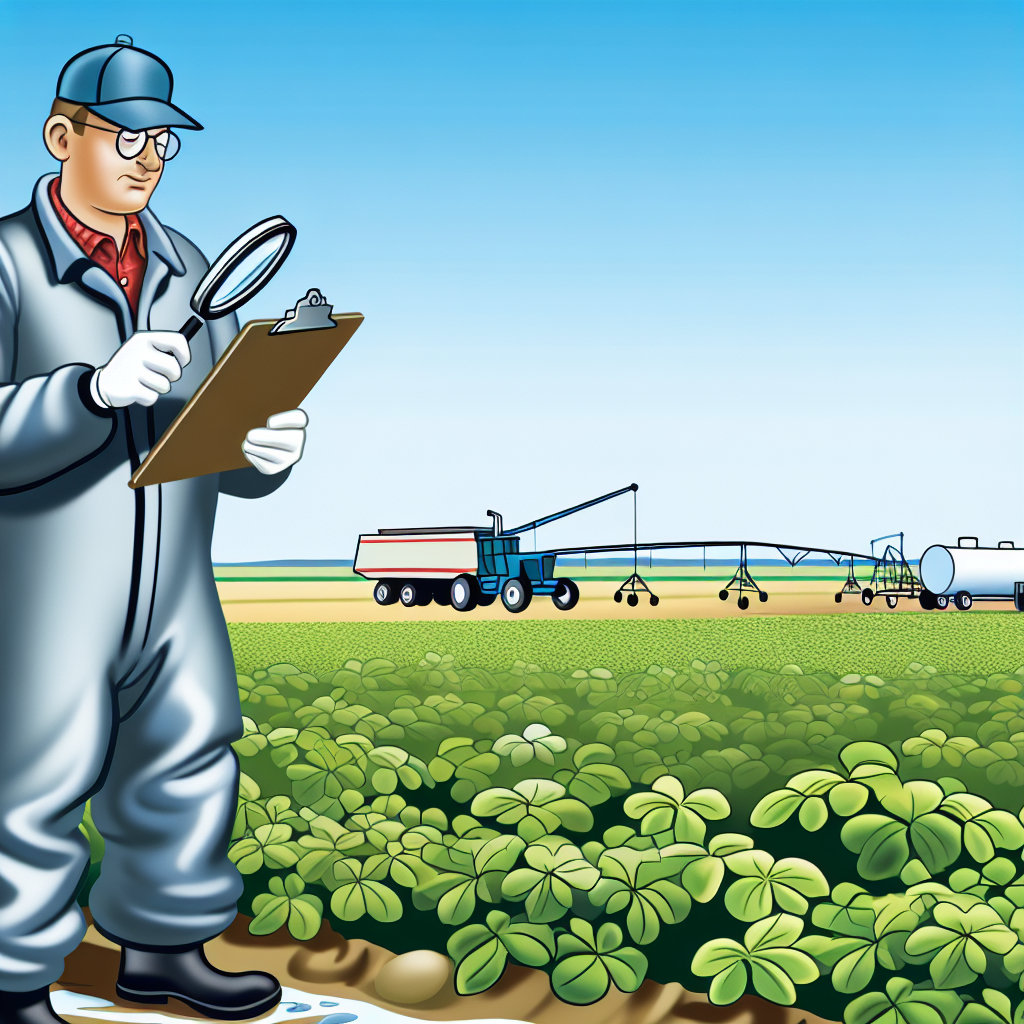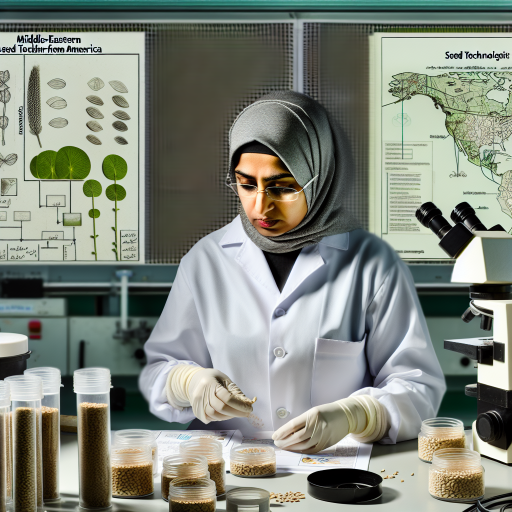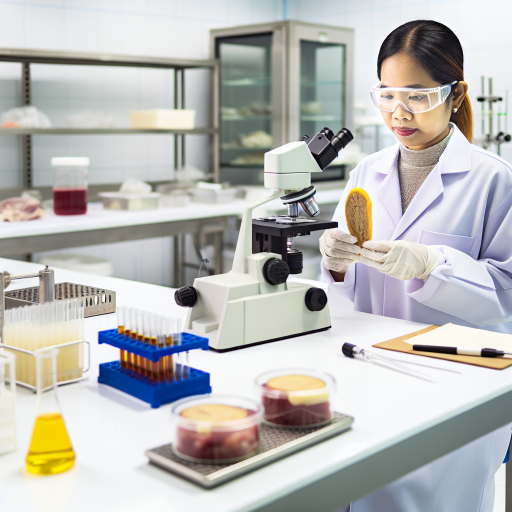Introduction:
In the agricultural industry, quality inspectors play a crucial role in ensuring that products meet standards.
Using tools is essential for guaranteeing high-quality agricultural products and maintaining consumer confidence.
Let’s delve into some common tools used by agricultural quality inspectors to perform their duties effectively.
pH Meters:
These tools are used to measure the acidity or alkalinity levels of soil or water, ensuring optimal conditions for growth.
Moisture Meters:
Moisture content is vital in agriculture. These meters help inspectors determine the right levels for specific crops.
Magnifying Glass:
To inspect plants for diseases or pests, magnifying glasses allow inspectors to closely examine each plant.
Digital Scales:
Precise weighing of agricultural products is necessary for accuracy in quality assessment and compliance with regulations.
Temperature Probes:
Monitoring temperature is critical in storing agricultural products like fruits, vegetables, and grains to prevent spoilage.
Handheld GPS Devices:
For large farms, GPS devices help inspectors navigate the area efficiently and accurately locate different inspection sites.
By utilizing these common tools, agricultural quality inspectors can uphold high standards and ensure the quality of agricultural products for consumers.
Digital Refractometer
A digital refractometer is a tool used by agricultural quality inspectors to measure the sugar content in fruits and vegetables.
- Explanation of what a digital refractometer is
- How it is used to measure sugar content in fruits and vegetables
- Importance of using a refractometer in determining product quality
A digital refractometer is a handheld device that measures the refractive index of a substance, such as fruits or vegetables, to determine its sugar content.
To measure sugar content, a small sample of juice from the fruit or vegetable is placed on the refractometer’s prism, and the device measures the refraction of light passing through the sample.
Measuring sugar content is essential for determining the ripeness and sweetness of fruits and vegetables, as well as their overall quality and shelf life.
Value of Digital Refractometers
The digital refractometer is a valuable tool for agricultural quality inspectors to ensure the quality of fruits and vegetables through accurate measurements of sugar content.
pH meter:
– A pH meter is a tool used to measure the acidity or alkalinity of a substance.
– It functions by measuring the concentration of hydrogen ions present in the substance.
– pH meters are commonly used by agricultural quality inspectors to measure acidity levels in soil and water.
– By measuring pH levels, inspectors can determine if the soil is suitable for specific crops.
How it is used to measure acidity levels in soil and water:
– In soil, inspectors collect samples and mix them with a solution to test the pH.
Transform Your Career Today
Unlock a personalized career strategy that drives real results. Get tailored advice and a roadmap designed just for you.
Start Now– The pH meter is then inserted into the solution, and a reading is taken.
– For water, a sample is taken and directly tested using the pH meter.
– Inspectors use the pH reading to assess if the soil or water is within an optimal range for plant growth.
Importance of maintaining proper pH levels for crop growth and quality:
– pH levels affect the availability of nutrients in the soil for plant uptake.
– If the pH is too high or too low, it can lead to nutrient deficiencies in plants.
– Maintaining proper pH levels ensures that plants can access essential nutrients for growth.
– Inspectors use pH meters to help farmers make adjustments to soil pH to improve crop quality.
Overall, pH meters are essential tools for agricultural quality inspectors to ensure the optimal growth and quality of crops by monitoring and adjusting acidity levels in soil and water.
Gain More Insights: Quality Control Inspector: Ensuring Product Compliance
Moisture meter:
A moisture meter is a device that measures the water content present in soil or grains.
It works by sending an electrical current through the substance being tested and measuring the resistance.
It is used by inserting the probe of the meter into the soil or grains to get an accurate reading.
Monitoring moisture levels is crucial in agriculture to prevent spoilage and ensure overall product quality.
By knowing the moisture content, farmers can determine the right time for harvesting crops and storing grains.
It helps in preventing diseases and molds that thrive in damp conditions, thus preserving crop yield.
Maintaining proper moisture levels also prevents the growth of bacteria, which can contaminate the produce.
It is an essential tool for agricultural quality inspectors to assess the condition of crops and grains accurately.
Gain More Insights: Veterinary Collaborations in Dairy Science
Thermometer
A thermometer is an essential tool used by agricultural quality inspectors to monitor temperature accurately in various agricultural settings.
Showcase Your Business Today
Reach thousands of readers actively exploring professional services. Publish your business profile and grow your audience now.
Publish NowDifferent Types of Thermometers Used in Agriculture
There are several types of thermometers used in agriculture, including:
- Mercury Thermometers
- Digital Thermometers
- Infrared Thermometers
- Thermocouple Thermometers
- Bi-Metal Thermometers
How Thermometers are Used to Monitor Temperature
Thermometers are used to monitor temperature in storage facilities and during transportation of agricultural products to ensure optimal conditions are maintained.
Importance of Proper Temperature Control
Proper temperature control is crucial in maintaining product quality in agriculture. Temperature affects the shelf life, freshness, and overall quality of agricultural products.
Learn More: Creating a Sustainable Farm Business Model
Hand lens:
A hand lens is a small magnifying glass used for inspecting agricultural products.
It is essential for identifying pests, diseases, and defects in crops.
Agricultural quality inspectors use hand lenses to closely examine plant surfaces.
By detecting issues early, they can prevent contamination and ensure product quality.
Hand lenses help in the early identification of pests like aphids and mites.
They enable inspectors to spot diseases such as powdery mildew or leaf spot.
Inspectors can also use hand lenses to check for physical defects in fruits and vegetables.
Early detection of issues allows for timely intervention to prevent further damage.
Identifying problems early on helps maintain the overall quality of agricultural products.
Hand lenses are portable and easy to carry, making them convenient for on-site inspections.
They provide a closer look at plant structures, enabling inspectors to make accurate assessments.
Hand lenses help ensure that only high-quality produce reaches the market.
Agricultural quality inspectors rely on hand lenses for thorough and detailed examinations.
Using hand lenses is a proactive approach to maintaining product integrity and consumer satisfaction.
Explore Further: Agricultural Labor Jobs for Veterans: Opportunities and Support

Digital scale:
A digital scale is a device that measures weight digitally using electronic sensors.
It works by converting the pressure exerted on the scale into an electronic signal.
Agricultural quality inspectors use digital scales to measure the weight of various products.
It is crucial for pricing agricultural products accurately and ensuring quality control.
UV flashlight:
Definition of a UV flashlight and its uses in agriculture: A UV flashlight is a portable device that emits ultraviolet light and is commonly used in agriculture for inspection purposes.
How it is used to detect molds and pests on crops: Agricultural quality inspectors use UV flashlights to scan crops for the presence of molds and pests. When the light hits these contaminants, they fluoresce, making them easier to spot.
Importance of early detection to prevent contamination and ensure product quality: Early detection of molds and pests is crucial in preventing contamination of crops. By using UV flashlights, inspectors can identify issues before they spread, ensuring the quality of the final product.
Common Tools Used by Agricultural Quality Inspectors
In order to effectively assess the quality of agricultural products, inspectors utilize various tools.
Testing Kits
These kits are used to check for levels of pesticides, allergens, pathogens, and other contaminants in the products.
Sampling Tools
Inspectors use tools like corers, scoops, and pipettes to collect samples for laboratory analysis.
Inspection Light
An inspection light helps inspectors to detect bruises, decay, or any other visible defects in the products.
Moisture Meters
Moisture meters are used to measure the moisture content in grains, fruits, and vegetables for quality control purposes.
Thermometers
Inspectors use thermometers to monitor the temperature of products during transportation, storage, and processing.
Colorimeters
Colorimeters are used to measure the color of agricultural products, which can indicate ripeness, freshness, and quality.
The use of tools in agricultural quality inspection is crucial for ensuring the safety and quality of products.
Agricultural quality inspectors should make use of these common tools to improve product quality and safety.
Additional Resources
[E-Books for Sale]
The Big Book of 500 High-Paying Jobs in America: Unlock Your Earning Potential
$19.99 • 500 High-Paying Jobs • 330 pages
Explore 500 high-paying jobs in America and learn how to boost your career, earn more, and achieve success!
See All 500 High-Paying Jobs of this E-Book
1001 Professions Without a Degree: High-Paying American Jobs You Can Start Now
$19.99 • 1001 Professions Without a Degree • 174 pages
Discover 1001 high-paying jobs without a degree! Unlock career tips, skills, and success strategies for just $19.99!




